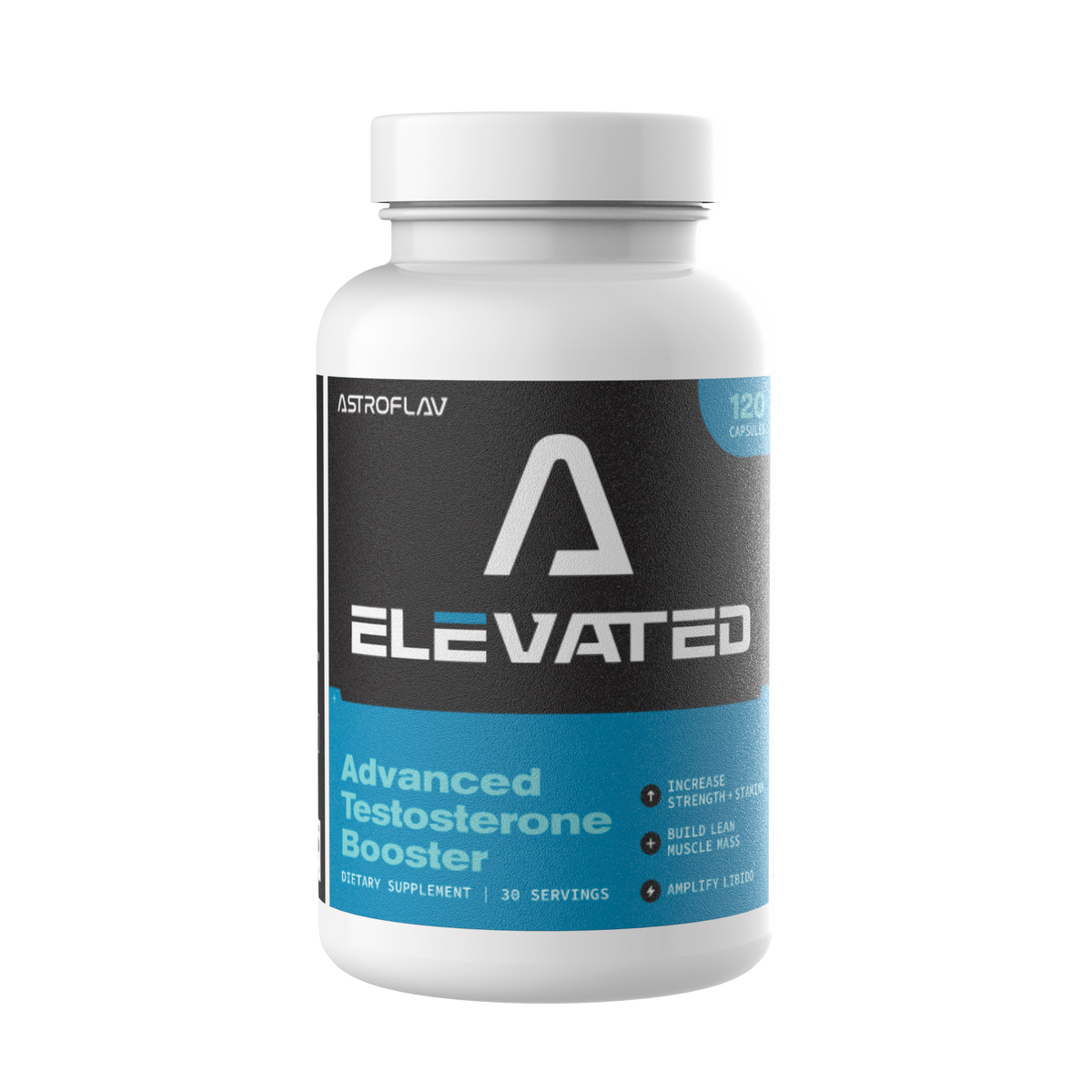The Keto Diet: Is It For You?
A beginner's guide to whether or not you should go keto!
Low carb, no carb, high protein, however you may have heard it… The Keto diet. You may be wondering if this style of eating is the right one for you. While some prefer having adequate amount of carbs in their diet, others may not and that's okay! Although there is much debate on whether or not the keto diet is considered a healthy approach to eating, there are many things to consider when looking to go keto.
Today’s blog gives science-based facts on both the positives and negatives of the keto diet. Keep reading to learn if the keto diet is the style of eating for you!
Just as any other diet such as paleo or vegan, the keto diet remains one of the most searched and attempted styles of eating. Keto is essentially a low carb, high fat diet that prepares your body to undergo a metabolic process called "ketosis." This is when the body begins to burn fat opposed to burning carbohydrates for energy.
Some people swear by the keto diet, while others are completely opposed to the thought of eating such a low amount of carbs. While there are many health benefits of following the keto diet, such as reducing blood sugar and insulin level, there are also some things to consider before switching to low carb.
Keep scrolling to learn the positives and negatives of the keto diet and if you should consider or stay away from this popular diet!
Keto: What does the science say?
The ketogenic diet (keto) was originated in the early 1920s to provide an alternative to fasting for those with the condition of epilepsy. This diet was intended to utilize as epilepsy therapy to help manage conditions and help ease symptoms (Mandal, 2019). As years went on, ketogenic thus was and still is used as a weight-loss tactic for those looking to shed off some pounds quick!
This diet is very strict and only allows for a certain amount of carbohydrates in a day. Those following the keto diet likely are consuming only 20-50 grams of carbohydrates in a day, while 20-50 grams of carbs are usually in an average American breakfast!
Ketosis is the name of the condition that the body will go through while adapting to eating keto. It typically takes a few days to reach the state of ketosis and you have to be mindful of not over-consuming protein while on keto. Like I said, very strict and restrictive. The keto diet relies on ketone bodies: a type of fuel or energy source that the liver produces from stored fat (Harvard Health, 2020).
While most athletes, runners, and weight-lifter prefer eating high carb, low carb may actually be beneficial for some individuals. Below provides both the positives and negatives of the keto diet and who should consider/avoid eating keto.
Positives:
Although the keto diet is very strict and put major emphasis on low carb, there are many positives of going on keto. This style of eating can improve markers of health — such as:
Supports weight loss
Improves cholesterol
May reduce seizures
May lower blood pressure
Improves insulin resistance and blood sugar control
Additionally cuts out nearly all processed foods
Negatives:
Individuals such as weight-lifters, athletes, and runners tend to steer clear of the keto diet. This is because carbohydrates are the main fuel source for quick energy for a training session or competition.
Gives up whole grains, beans, fruits and many vegetables.
May cause nutrient deficiencies and constipation.
May cause short-term side effects such as fatigue, headache, brain fog and upset stomach.
Restrictive and not sustainable long-term.
May raise levels of LDL cholesterol from eating higher fat.
Less muscle mass and decreased metabolism.
Potential weight regain after lengthy restriction
The negatives of going keto may outweigh the positives in this sense of eating. The keto diet has many factors to consider when switching to a low carb diet. Additionally, it is important to stay mindful of your own body's preferred style of eating and advised to get a doctor's intake when considering a new diet.
Who should consider going keto?
It is common for many individuals to use the keto diet as a method of weight loss, but there are a handful of conditions in which the keto diet may benefit from. Aside from fat loss, here are a few health conditions in which keto may propose additional benefits:
Epilepsy
Metabolic Syndrome
Polycystic Ovary Syndrome (PCOS)
Diabetes
Obesity
Alzheimer's Disease
Parkinson's Disease
Traumatic Brain Injuries
Although the provided list of health conditions is quite specific, keep in mind that all individuals are unique and may need a different approach to dieting. It is also important to speak with your health care provider so see if the keto diet will best sustain specific health conditions.
Who should avoid going keto?
If you're serious about starting the keto diet, it is important to discuss it with your healthcare provider first to see if it's the right diet for you. Additionally, they are the ones who can formulate a plan to ensure your diet is safe and meets your nutritional needs. With that being said, there are individuals who should not try the keto diet due to negative health risks that may occur. Below is a recommended list of those who should avoid going on the keto diet.
People with IBS
People with kidney and/or liver problems
Those with osteoporosis
People who are underweight
Pregnant or breastfeeding women
Those with a history of eating disorders
High performance athletes
If you fit into one of the categories above, you may want to consider another approach to changing up your diet. Of course, if you feel that this diet is the best for you and have clearance from your doctor, you are to do as you prefer!
It is sustainable?
Since the ketogenic diet is one of the most common diets amongst society, you may be wondering how sustainable it is. To answer this question: the keto diet is a great method for weight loss short term, but is not a sustainable diet to follow long term.
Why? Like any diet, keto is restrictive. "When the body senses restriction, it is not uncommon that once it backslides, the weight will likely return," says dietitian Kathy McManus (Harvard Health, 2020).
Additionally, when trying to resume normal eating habits, it is important to slowly add carbohydrates back into your diet. It is recommended to work with a dietitian or healthcare provider to ensure you are taking the right approach. Otherwise, because the body is not use to having an adequate amount of carbs, it will not be able to readjust quickly and put back on the weight loss, if not more.
The wrap up:
The ketogenic diet is a well-known diet that puts major emphasis on low carb and high-fat. The overall goal of this diet is to burn ketones from fat opposed to carbohydrates for lasting energy. Many people following a keto diet will tend to have a limited amount of carbohydrates in a day, ranging from 20-50 grams.
Those who may consider going on the keto diet are individuals with conditions such as epilepsy, diabetes, obesity, and a handful of others. Because of their given condition, studies are finding that a low carb, high fat diet may reduce symptoms.
Contrary to those who may consider the ketogenic diet, there are many individuals who should avoid this style of eating. Those with IBS, kidney/liver conditions, eating disorders, and high performance athletes tend to steer away from following the keto diet as their main source of fuel comes from carbohydrates.
Although this way of eating is often used as a quick method of weight loss, it is not sustainable long term. Due to the strict style of eating, limited amount of carbs, and restriction in the ketogenic diet, regaining weight that was lost is not uncommon.
Again, when considering whether or not the keto diet is a style of eating you want to experiment with, it is important to get your healthcare providers advice and recommendations!
RESOURCES
Mandal, D. A. (2019, February 27). History of the ketogenic diet. News. Retrieved April 10, 2023, from https://www.news-medical.net/health/History-of-the-Ketogenic-Diet.aspx
Should you try the keto diet? Harvard Health. (2020, August 31). Retrieved April 10, 2023, from https://www.health.harvard.edu/staying-healthy/should-you-try-the-keto-diet
Ułamek-Kozioł, M., Czuczwar, S. J., Januszewski, S., & Pluta, R. (2019, October 18). Ketogenic diet and epilepsy. Nutrients. Retrieved April 10, 2023, from https://www.ncbi.nlm.nih.gov/pmc/articles/PMC6836058/
At AstroFlav, we want the best for our customers. It is our goal to help everyone achieve their fitness goals and steer them in the right direction with trust-worthy advice AND trust-worthy supplements!
ASTROFLAV ISOMIX
Benefits
IsoMix's™ whey protein isolate comes in amazing flavors that will satisfy your inner child while helping you stay healthy without all the guilt!
Easy mixing in less than 60 seconds!
Out Of This World Flavor!
Minimal sugar & carbs!
An ideal protein for any low-carb diet!
How To Use
Quick and easy two step mixing!
Pour 8-10 oz of your preferred beverage.
Add 1 serving of IsoMix to your shaker cup. (Mixes great even with a spoon)
Quick and easy smoothie!
Add 1 serving of IsoMix to a blender filled with 8-10 oz of water, nonfat milk, or your favorite beverage.
Blend for 20-30 seconds.
Add 1 or 2 ice cubes and blend for another 30 seconds.
Manufactured in the USA
Our products are made in cGMP compliant facilities in the United States, using only the best ingredients. For us, it's all about quality control - so you can have confidence in your dietary supplements.
ASTROFLAV ISOMIX
Benefits
IsoMix's™ whey protein isolate comes in amazing flavors that will satisfy your inner child while helping you stay healthy without all the guilt!
Easy mixing in less than 60 seconds!
Out Of This World Flavor!
Minimal sugar & carbs!
An ideal protein for any low-carb diet!
How To Use
Quick and easy two step mixing!
Pour 8-10 oz of your preferred beverage.
Add 1 serving of IsoMix to your shaker cup. (Mixes great even with a spoon)
Quick and easy smoothie!
Add 1 serving of IsoMix to a blender filled with 8-10 oz of water, nonfat milk, or your favorite beverage.
Blend for 20-30 seconds.
Add 1 or 2 ice cubes and blend for another 30 seconds.
Manufactured in the USA
Our products are made in cGMP compliant facilities in the United States, using only the best ingredients. For us, it's all about quality control - so you can have confidence in your dietary supplements.
Have you tried any of our high-protein recipes from our blog?
Let us know what you think!
Share your story with daynapembroke@astroflav.com to be featured in our Facebook community.
Join our family for new videos, discount codes, and more!






